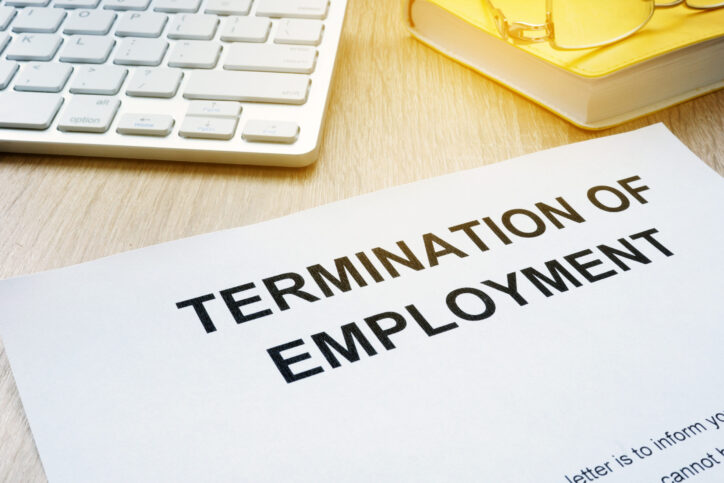On June 3, 2024, the Fair Work Commission Full Bench (FWCFB) handed down a decision in an appeal that was lodged to overturn an unfair dismissal ruling. Our employee relations experts examine the case and what it means for businesses.

Case facts
The original unfair dismissal claim centered on the termination of the respondent, Deanna Giblin, from the Coogee Legion Ex-Service Club Ltd in New South Wales.
Giblin commenced with the club on October 15, 2021, as a casual customer service attendant, before moving to duty manager on August 25, 2022. In April 2023, an external audit of the club’s stock found that it was missing a significant amount.
The club then updated its policies, targeting the consumption of food and beverages without receiving payment from employees. Following this, a staff meeting was called to explain the updated policies. After the meeting, managerial staff who were in attendance noticed a group of employees, including Giblin, in conversation at a bar.
A secondary stocktake on April 27, 2023, revealed further stock discrepancies, and as such the club decided to review CCTV footage, which included a duration of time after the staff meeting on April 18.
As a result of the footage, several staff were then placed on suspension while the club undertook an investigation. The respondent was included in this group.
The respondent was then interviewed on May 1, 2023, as part of the investigation process. She was offered the opportunity to resign, or she would be dismissed.
The respondent declined to resign and was asked back to the club’s premises on May 5, 2023, where she was provided with a termination letter, citing immediate dismissal for theft and fraud, backdating to April 18, 2023.
On October 24, 2023, FWC Deputy President Judith Wright upheld that the dismissal was unfair based on the club's use of the words “theft” and “fraud”, finding them to be unnecessarily “intimidatory” and suggested the employee had engaged in “criminal behavior”.
The club appealed against the decision on November 21, 2023, where it was put forward to a Fair Work Commission Full Bench (FWCFB).
The decision
The club argued that the Deputy President was incorrect when she stated that it did not have a valid reason for dismissal and that the “requirement to establish misconduct to the criminal standard” before terminating an employee for it was also incorrect.
Further arguments by the club against the Deputy President’s decision also included that she was wrong to suggest the use of the words “theft” and “fraud” were intentionally used to be “intimidatory” towards the respondent.
After the bench reviewed the CCTV footage, they concluded that the Deputy President could not have solely relied on the footage to determine what the respondent’s intentions were on April 18, 2023, although they did agree that the footage did appear to show the respondent allegedly neglecting to pay for her drink.
The FWCFB also agreed the Deputy President’s reasoning that the club had to establish, beyond reasonable doubt, that the employee had engaged in criminal behavior was unreasonable.
They found the club had genuine concern about the conduct of the respondent and took the necessary action required when it dismissed her. However, the bench noted that an employer cannot rely on reasonable belief alone, unless it falls under the Small Business Fair Dismissal Code. Instead, the balance of probabilities remains the required standard of proof.
In conclusion, the bench rejected the Deputy President’s decision that the respondent’s dismissal was unfair. Their reasoning included that should an employee be aware of their obligation to pay for their employer’s property and intentionally does not, and their employer believes the property has been taken without payment, then an employer alleging the employee’s conduct constitutes theft is reasonable.
Key takeaways
A key takeaway from this case is the importance of an employer’s conduct when they are of the belief that an employee has engaged in criminal behaviour.
Whilst in this case it was clear that criminal behavior was substantiated, in other cases it may not be so easily determined. It is imperative that employers inform their employees of their obligations and responsibilities, and by having well-drafted policies that clearly outline the ramifications of breaching such obligations and responsibilities. This allows an employer to take the correct action, and justifiably so, if it is found and evidenced that an employee intentionally ignored policies.
A second takeaway is for employers to understand when it is appropriate to use certain legal terms when terminating an employee. In this case, the employer clearly outlined to the employee that their termination was because of theft and fraud.
The employer was able to use that terminology as it knew it held the evidence to substantiate the allegations, and to support their argument should the employee submit a claim against them. Employers need to prepare themselves in this way to ensure they are protecting the welfare and reputation of the business, should they terminate an employee for criminal behaviour.
Due to misinterpretation of what is considered a fair dismissal, and what evidence can be used to substantiate criminal behavior, CCIWA strongly recommends that employers contact the Employee Relations Helpline on 08 9365 7660 or via [email protected] to seek further advice prior taking any action.












